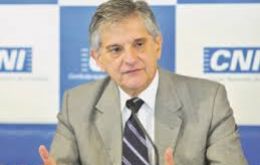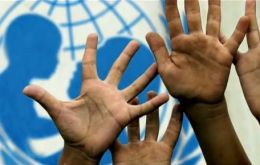MercoPress. South Atlantic News Agency
Stories for September 2014
-
Saturday, September 6th 2014 - 06:27 UTC
Brazil's industrial activity shows the economy if far from a strong recovery

Industrial-activity data released this week added to worries that Brazil's economy, already in recession, is far from a strong recovery. The trade group National Confederation of Industry, CNI, said revenue for the Brazilian manufacturing sector fell 5.1% in July from a year earlier and rose 1.2% from June.
-
Saturday, September 6th 2014 - 06:23 UTC
Latin America has the worst homicide and abuse stats in children and teenagers

Latin America and the Caribbean have the largest share of homicides among children and adolescents in the world, revealed a UNICEF report released yesterday. According to the study, in 2012 alone, “more than 25,000 homicide victims in the region were below the age of 20 — representing about one quarter of all homicide victims worldwide.”
-
Saturday, September 6th 2014 - 03:14 UTC
Argentina says creditors willing to swap bonds; holdouts warn about “contempt of court”

Argentina's Cabinet Chief Jorge Capitanich said on Friday that “many” creditors are willing to accept a change in payment location to collect their money as the ongoing legal dispute with the holdouts continues to endanger the country's international credit and reputation.
-
Saturday, September 6th 2014 - 03:04 UTC
Marina Silva's lead turns Dilma more aggressive in her re-election bid

Brazilian President Dilma Rousseff has adopted a more combative re-election campaign strategy after opinion polls showed her trailing popular environmentalist candidate Marina Silva. Two election surveys this week showed Rousseff was the frontrunner in the first round ballot scheduled for October 5, but would lose to Silva, a former environment minister, in a likely runoff.
-
Friday, September 5th 2014 - 07:47 UTC
Argentine Senate approves bill changing debt payment jurisdiction; next step Lower House

Argentina's Senate on Thursday passed a bill aimed at circumventing U.S. court decisions regarding its defaulted debt by changing payment jurisdiction, sending the proposal to the lower house Chamber of Deputies for final approval. The chamber, like the Senate, is controlled by government allies who are expected to vote the bill into law.
-
Friday, September 5th 2014 - 07:33 UTC
NML Capital subpoenaed 18 banks in search of embezzled Argentine funds

NML Capital Ltd, a creditor suing Argentina in the U.S. courts for full payment on defaulted debt, subpoenaed 18 banks last week in an effort to track down 65 million dollars in what it says is embezzled Argentine money laundered through the United States.
-
Friday, September 5th 2014 - 07:13 UTC
Uruguay's main presidential opposition candidate suffers “Watergate break-in” crime

Uruguay's main opposition candidate for October's contested presidential election was the victim of a “Watergate break-in” crime at the offices of the agency which is running his surprisingly successful campaign.
-
Friday, September 5th 2014 - 03:28 UTC
Falklands' GDP 'volatile' because of fisheries and oil and gas exploration

Recently released data shows that the Falkland Islands Gross Domestic Product (GDP) continues to be volatile: expanding considerably during some years and shrinking in others. For example, 2012, a year of intense hydrocarbons activity the per capita for a population of 2.562, in the books soared to £77.400.
-
Friday, September 5th 2014 - 02:19 UTC
Bank of England leaves interest rate on hold at 0.5%; eyes set on minutes to be released 09/17

The Bank of England has held UK interest rates at a record low of 0.5% for another month. The size of the Bank's economic stimulus program - quantitative easing - was also unchanged at £375bn.
-
Friday, September 5th 2014 - 02:17 UTC
ECB cuts rates to record low and negative for overnight deposits; Euro/dollar slumps below 1.3

The European Central Bank cut interest rates to new record lows on Thursday, unexpectedly lowering borrowing costs to try to lift inflation from rock-bottom levels (deflation) and support the stagnating euro zone economy. The ECB cut its main refinancing rate to 0.05% from 0.15%.
